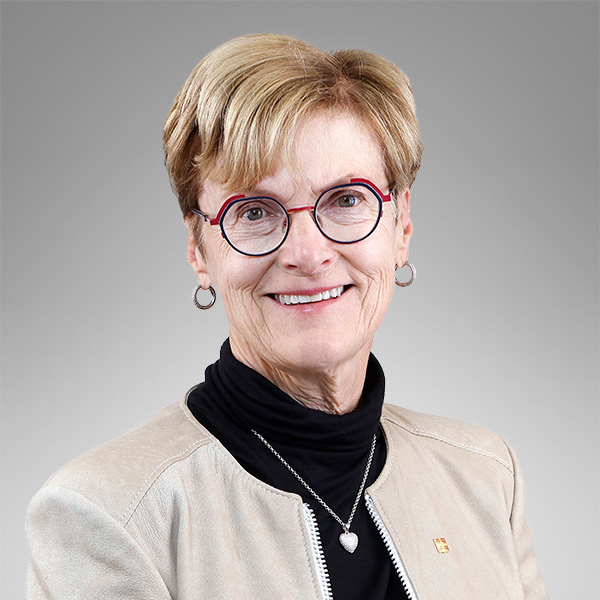Lucie Baillargeon
Professor Emerita
Professor Lucie Baillargeon is a leading figure in the development of palliative and end-of-life care in Quebec. This accomplished family physician has distinguished herself through her outstanding commitment to teaching and research aimed at more humanized care.
A pioneer in palliative care
After earning her medical degree in 1978, Professor Baillargeon continued her training with a master’s degree in experimental medicine before embarking on a long academic career. She joined the Department of Family and Emergency Medicine as a clinical lecturer in 1987 and became a professor in 1994. In 2005, she took charge of the palliative care division and established a structured training program recognized for its rigour and clinical relevance. This role served as a catalyst for her engagement and influence. She chairs the interdepartmental committee on palliative care within the Faculty of Medicine, the steering committee of the Université Laval Research Chair in Palliative Care, and the Réseau universitaire québécois de soins palliatifs, in addition to serving on the regional palliative care committee of the Agence de la santé et des services sociaux de la Capitale-Nationale.
Combining clinical expertise, a humanistic approach, and a systemic vision to advance care for people at the end of life, she played a major role in the creation of the Institut de soins palliatifs et de fin de vie Michel-Sarrazin– Université Laval—the first of its kind in Quebec—thereby laying the groundwork for an integrated model of teaching, research, and care delivery recognized far beyond the province.
Following the adoption of the Act Respecting End-of-Life Care, she went on to chair the continuing education committee on medical assistance in dying within the Faculty of Medicine and the advisory committee on medical assistance in dying of the Réseau universitaire intégré de santé et de services sociaux de l’Université Laval.
Over the course of her career, she has served on numerous provincial and pan-Canadian committees, including the committee on levels of medical intervention of the Institut national d’excellence en santé et en services sociaux and the opioids expert panel of the Association of Faculties of Medicine of Canada, thereby playing a key role in defining clinical guidelines across the country.
A model for teaching and research in medicine
Appointed Director of the Clinical Research Unit in Family Medicine at the CHUL Research Centre in 1989, Professor Baillargeon has been active in research since the very start of her career as a clinician-instructor Over the course of her career, she has contributed to 17 research projects on various topics related to primary care services, securing more than $3 million in grants.
Keen to enhance student training, Professor Baillargeon has also contributed to two major teaching innovations: the self-learning modules on critical reading skills—which earned an Award of Excellence in Teaching from Université Laval—and the EBMSources platform, a directory of sites providing clinical information based on scientific evidence.
In addition to her teaching activities, she has devoted herself to disseminating medical knowledge, notably as associate editor of the journal Médecin de famille canadien and as a columnist for L’Actualité médicale.
Through her sustained commitment, rigorous scientific insight, and compassion, Professor Baillargeon has left a lasting mark on medical education and on the development of policies and practices in end-of-life care and medical assistance in dying.
